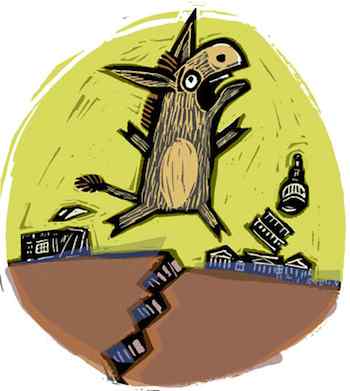- MENU
- HOME
- SEARCH
- WORLD
- MAIN
- AFRICA
- ASIA
- BALKANS
- EUROPE
- LATIN AMERICA
- MIDDLE EAST
- United Kingdom
- United States
- Argentina
- Australia
- Austria
- Benelux
- Brazil
- Canada
- China
- France
- Germany
- Greece
- Hungary
- India
- Indonesia
- Ireland
- Israel
- Italy
- Japan
- Korea
- Mexico
- New Zealand
- Pakistan
- Philippines
- Poland
- Russia
- South Africa
- Spain
- Taiwan
- Turkey
- USA
- BUSINESS
- WEALTH
- STOCKS
- TECH
- HEALTH
- LIFESTYLE
- ENTERTAINMENT
- SPORTS
- RSS
- iHaveNet.com: Politics
by Anna Mulrine

Democrats Worried About 2010 Election Prospects (© William L. Brown)
Retirements and declining poll numbers have some Democrats worried about the election
In a tough election year, retiring is a time-honored, blame-free way for embattled incumbents to bow out of potentially losing races. But as
North Dakota Democratic Sen. Byron Dorgan's announcement that he won't seek re-election, however, could have just the opposite impact. Dorgan's bid was considered a safe bet for the Democrats, but his retirement creates one of the best chances for Republicans to pick up a
Democrats say that though they are bracing for some challenging races throughout the country later this year, the timing of the departures means that the party can begin to recruit quality candidates for the midterms. "A lot of them have to make a decision now if the person to replace them is going to get a head start in the campaign, raise money, and get going," Fenn says. And sentimental feelings about Dodd's legacy could help give momentum to the Democrats' financial reform legislation. Beyond that, Democratic candidates will very likely be campaigning on their populist roots, going after the big banks and the big insurers. "That can be a winning strategy," Lux says.
The definition within the
AMERICAN POLITICS
WORLD | AFRICA | ASIA | EUROPE | LATIN AMERICA | MIDDLE EAST | UNITED STATES | ECONOMICS | EDUCATION | ENVIRONMENT | FOREIGN POLICY | POLITICS
Receive our political analysis by email by subscribing here
Some Democrats Wary of 2010 Election Prospects | Anna Mulrine
© Tribune Media Services